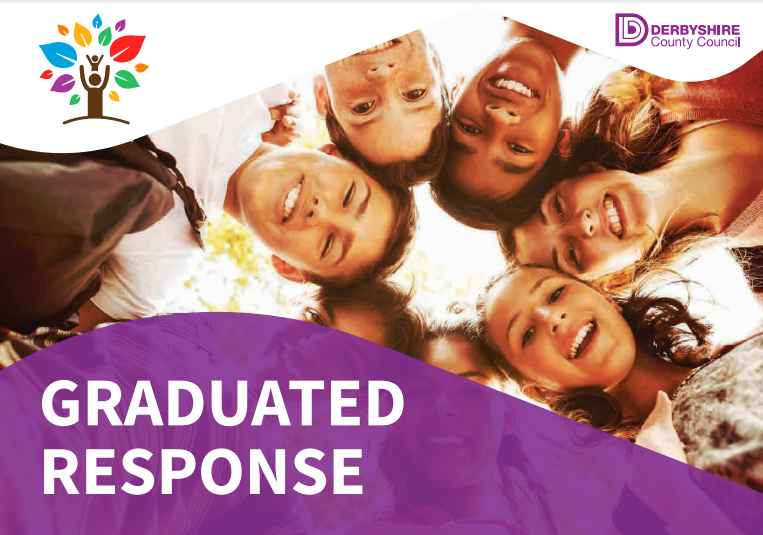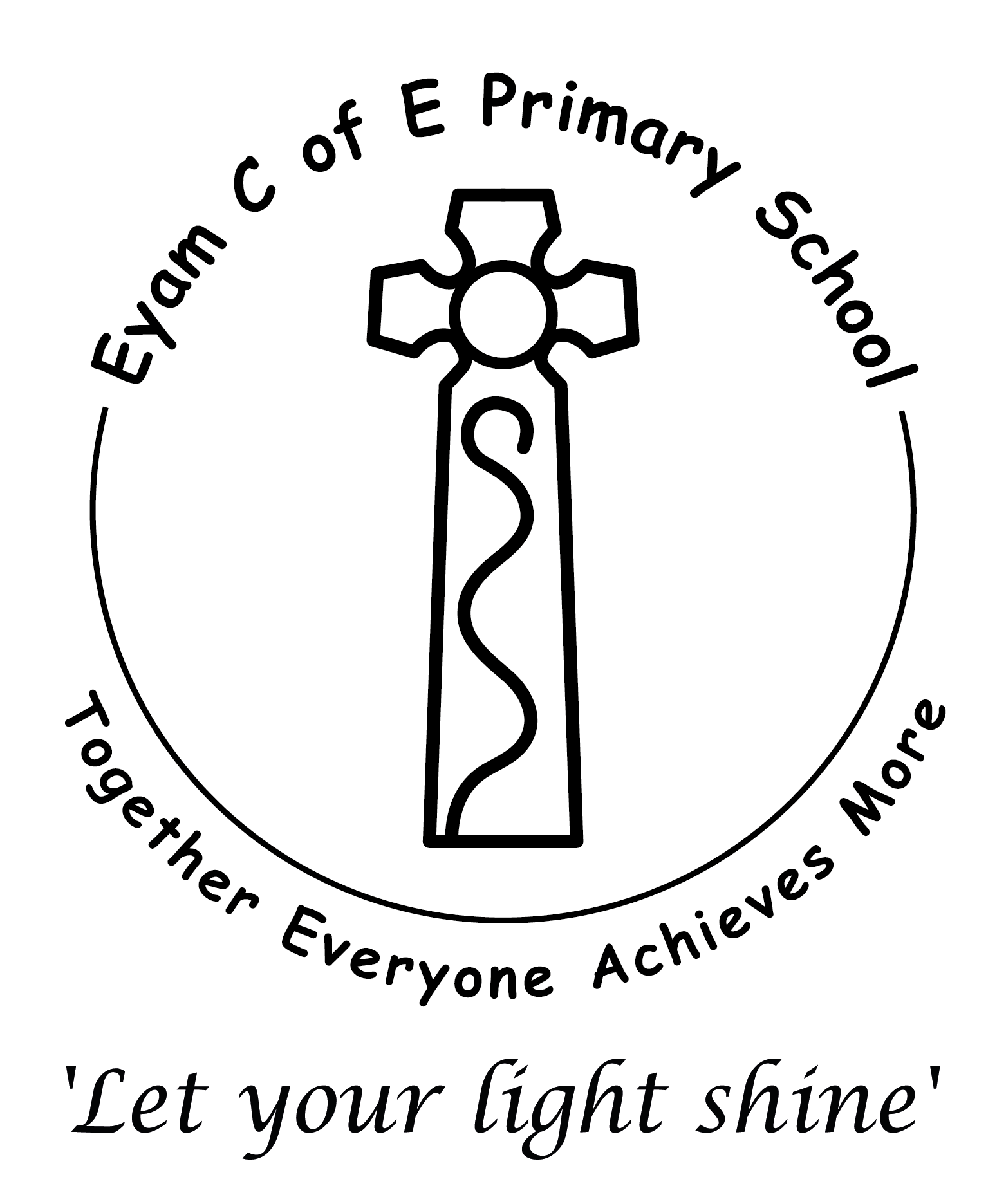Inclusion (SEND)
Please see policies page for all SEND policies and documents: The Web design team have used a range of software to ensure the website is accessible to all users. If you feel there should be amendments please don't hesitate to contact the school, thank you.
What kind of special educational needs provision is accessible for children at Eyam School?
Eyam School is a fully inclusive mainstream school which ensures that all pupils achieve their potential; personally, socially, emotionally and academically in all areas of the curriculum, regardless of their gender, race, social background, religion, sexual identity, physical ability, family situation, or educational need.
We aim never to knowingly discriminate against the protected characteristics and actively seek to help each other be aware of these. Meeting the needs of all pupils including those with Special Educational Needs and Disability (SEND) is central to the work of our school. The staff, parents/carers, children, Governors and outside agencies work together to ensure that all children have access to the highest quality teaching and learning.
The Special Educational Needs Co-ordinator at Eyam School is the Head Teacher Oona Gilbertson. Please contact Mrs Gilbertson at the School on Tel: 01433 630840.
What is the schools approach to teaching children with SEND?
We are a fully inclusive school and strive to ensure that all pupils achieve to their full potential. All children receive quality first teaching in the class with the teacher before we decide whether to provide additional in class support or to take a child out of class for extra or different learning tasks. All lessons are differentiated to meet the needs of the range of children in the class. Children may work in ability or social groups, pairs or when necessary in a 1:1 situation. In our school we aim to offer excellence and choice to all our children, whatever their ability or needs. We have high expectations of all our children. We aim to achieve these through the removal of barriers to learning and participation. We want all our children to feel that they are a valued part of our school community.
Through appropriate curricular provision, we respect the fact that children:
- have different educational and behavioural needs and aspirations;
- require different strategies for learning;
- acquire, assimilate and communicate information at different rates;
- need a range of different teaching approaches and experiences.
- might have physical needs that mean they need additional help, equipment support or challenge
- may have emotional needs which effect their learning or ability to socialise
- face additional challenges during their lives which may affect their learning
How do we identify children who may have an SEND need?
- A close relationship with local pre-school providers helps us in the early identification of any child who is transferring to our setting that has additional needs of any kind. The SENCO will liaise with both the parents and the previous providers and attend any relevant meetings prior to that child starting school to ensure that the school has a clear understanding of the child’s needs and to ensure a smooth transition is made.
- All children entering the school in the reception classes are assessed to form a baseline of attainment. If necessary, a further assessment of their communication needs will be made using the Every Child a Talker monitoring kit or their physical needs using the Every Child a Mover monitoring tool or their sensory needs via the Sensory toolkit.
- If a parent has a concern about their child either when they start school or as they are progressing through the school then we listen carefully to their views.
- Teachers make careful observations of all the children in their class and can raise any concerns with the SENDCO, Head or the DSL.
- Pupil progress meetings/discussions are held several times a year from which we track all children and identify those who are not making expected progress.
- Interventions/support programmes are then implemented and monitored to ensure that accelerated progress is made and gaps are narrowed or that emotional needs are supported through a mental wellbeing intervention.
What provision is made for children with SEND?
In line with the code of practice we offer a graduated response; all children receive quality first teaching (QFT) by all staff in school who take responsibility for ensuring the best possible programme for every child. Staff adapt, extend and reinforce basic skills and concepts, share learning objectives, focus on individual needs, use a range of learning strategies such as kinaesthetic, visual and auditory, monitor progress and liaise with parents. This universal provision is termed Wave 1: Inclusive QFT.
The Wave 2 level of support is provided if our assessments show that a child may have a learning difficulty, we use a range of strategies that make full use of all available classroom and school resources.
The child’s class teacher or TA will offer interventions that are different from or additional to those provided as part of the school’s usual working practices. The class teacher will work closely with parents and pupils and the SENDCo to establish a good understanding of both strengths and challenges.
We will record the strategies used to support the child within an Individual Education Plan (IEP). The IEP will show the short-term SMART targets set for the child and the teaching strategies to be used. It will also indicate the planned outcomes and the dates for the plan to be reviewed. In most cases this review will take place twice yearly.
Progress will be closely monitored and reviewed with the SENCO during specific pupil progress meetings. This graduated response is based upon both teachers, parents and pupils working together. It is highly personalised as it responds over time to a growing understanding of the child’s barriers to learning and an increasingly individualised assessment of need. The code 2015 states “Teachers are responsible and accountable for the progress and development of the pupils in their class, even where pupils access support from teaching assistants and specialist staff.”
Wave 3 provision is for a small minority of pupils who require external provision: may have applied for an Educational Health Care Plan (EHCP); be in receipt of Graduated Response for Individual Pupil (GRIP) funding; TAPs funding (a short term grant); or by specialist support such as speech and language, autism outreach, Childhood Adolescent and Mental Health (CAMHs), Multi Agency Team (MAT), SSSEN or the Behaviour Support Team (BST). There may be additional links to Early Help support which we purchase through Lady Manners, this is for families facing social or emotional needs. There may also be support required for health needs which may mean a child receives short term support at Wave 2 or Wave 3.
Children may have an assessment with the EP for a specific need however their support may still be provided entirely from within existing staffing.
If the child’s needs continue to demonstrate significant cause for concern, an application for an EHCP, including assessments by professional services and school staff, will be made to the LA. A range of written evidence about the child will support the request. This will include an interview with both parents and child, copies of any assessments and provision maps showing the outcomes of support already provided by the school. An EHCP is rarely given in mainstream school and can take up to a year to apply for.
Derbyshire Graduated response document


How is an intervention/support monitored as to its effectiveness and impact?
Those children identified as benefiting from intervention/support are monitored against the progress they are making; this is normally at the termly pupil progress meetings attended by the SENCO, head teacher and the Class teacher. A meeting with parents is also held during the year to discuss the assessments that have been carried out and to work out a plan including what we want to achieve before the next assessment point, how we will achieve this, when will this work take place and who will support the child. The Headteacher reports to the governing body about the general management of support.
What additional support for learning is available to pupils with SEN?
The school provides various interventions/support that meets the individual needs of the children. Those who may require higher levels of support have access to appropriately trained support staff. The school has worked closely with the behaviour support service, the autism outreach service as well as the support service for children with speech & language difficulties and the support service for physical impairment.
How will my child be included in activities outside the school classroom including school trips?
All children regardless of additional needs are included in all school trips. Parents are informed about the nature of the trip and invited to participate in them with their child if needed. All trips are assessed for accessibility and to ensure that all children can participate in them as fully as possible. There are several out of school activities and they are open to all children regardless of any additional need.
Specific medical requirements
The school train all staff in administering specialist medication such as EpiPens, Diabetic testing and medication or asthma medication when necessary. If a child requires short term medication from a prescription. then arrangements can be made through the school office for the medicines to be administered in school to ensure that children are able to attend.
What specialist services and expertise are available at or accessed by the school?
When a child with additional needs starts at our school we endeavour to ensure that all staff have up to date training for the specific needs of that child for example dealing with epilepsy, specific communication needs e.g. Makaton, picture exchange systems, Deaf awareness or physical handling skills. All staff have up to date Safeguarding training and know what to do if they have any concerns about the welfare of a child.
The school has also worked closely with the school nurse, The Specialist Support Service for Special Educational Needs (SSSEN), The Educational Psychology Service, the Support Service for Physical Impairment, CAMH’s, The Hearing Impairment Service, Autism Outreach and Speech and Language Therapists, Health workers such as a School nurse and the School Doctor.
How Accessible is the school both inside and outdoors?
Following recent alterations, the school is fully accessible and we are able to provide an inclusive curriculum for all children. Please see the schools accessibility plan available in the Office.
How are parents involved in the school?
Parents are actively encouraged to be partners in their child’s education through; informal discussions with their child’s teacher, telephone contact, home school diaries, SEN support meetings, progress reviews, termly targets, twice yearly parent consultations and yearly written reports. Parents are also encouraged to come to the weekly reading together sessions as well as other one off events such as Maths Calculations sessions, Active sessions and Workshops. Parents of children receiving specialist support will be given opportunities to meet with external and internal staff at review meetings.
What are the arrangements for involving children with SEN about their wellbeing and education?
All children, regardless of SEND, are aware of their next steps. Children who have specific needs will work with both staff and parents to complete an SEND Support Plan which has a section for both parents and pupils to complete, this is reviewed annually.
How does the school/governing body involve health, social services, LA Support Services, and others in meeting the needs of children with SEN and supporting their families?
In order to meet the individual needs of a child the school will work with and seek advice from an educational psychologist, advisory teacher, speech and language therapist or health colleague to support the child’s academic and social progress. The school and governing body will uses its knowledge of The Local Offer in order to find the best possible support for a child – including how to contact a range of services and support.
